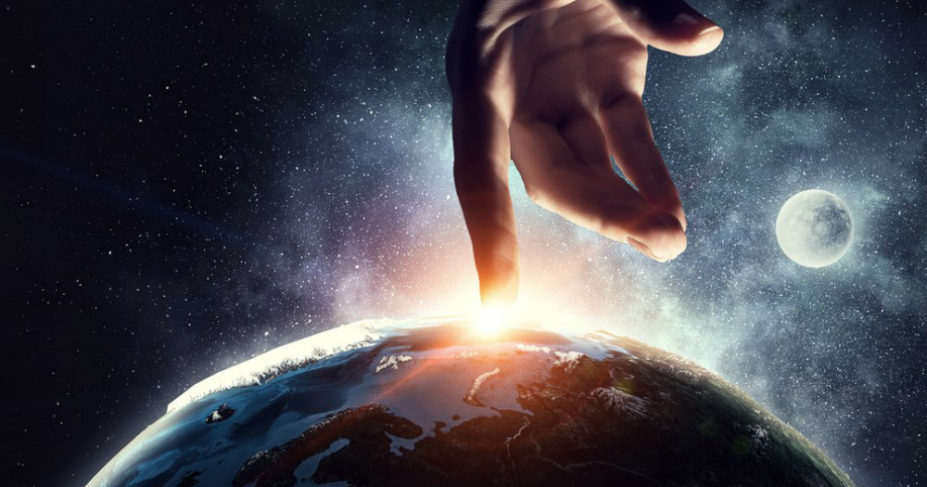An American physicist has examined which scientific discoveries point to an intelligent designer and not to a "blind evolutionary" process.
The beginning of the article recalls that according to a recent Gallup poll, the percentage of Americans who believe in God has fallen to 81 percent, a 10 percent decline over the past decade and an all-time low. This accelerating trend is particularly noticeable among young adults. According to a survey by the Pew Research Center, 18-29-year-olds are disproportionately present among the so-called "non-believers" - atheists, agnostics and religiously unaffiliated.
Pastors and other religious leaders attribute this trend to a number of factors: young people are raised outside the church, they do not know the liturgy and church culture, and even COVID-19.
"In our national survey, we also found another answer to uncovering the underlying causes of growing disbelief: a misunderstanding of science"
- writes Stephen C. Meyer, physicist and bestselling author, on Newsweek's website.
Meyer describes that they also conducted a survey that found that the perceived message of science is a leading factor in the loss of faith.
"We found that scientific theories about the unguided evolution of life in particular led more people to reject belief in God than concerns about suffering, disease or death. It also found that 65 percent of self-proclaimed atheists and 43 percent of agnostics believe that "the findings of science [generally] make the existence of God less likely," writes the director of the Discovery Institute's Center for Science and Culture.
According to the author, the spread of this perception is not surprising, he points out that in recent years many scientists have become famous advocates of atheism. Richard Dawkins, Lawrence Krauss, Bill Nye, Michael Shermer, the late Stephen Hawking, and others have published popular books arguing that science makes belief in God unnecessary or implausible. "The universe as we observe it has exactly the properties we would expect if it had basically no purpose, no plan...nothing but blind, ruthless indifference," the article quotes Dawkins.
"However, there is a big gap between the message and the reality. In the past century, important scientific discoveries have dramatically challenged science-based atheism, and three discoveries in particular tell a decidedly more God-friendly story."
the physicist declares.
The first such discovery, according to the scientist, is that science discovered that the physical universe had a beginning. This discovery, supported by both observational astronomy and theoretical physics, contradicts the expectations of scientific atheists, who have long posited the universe as eternal and self-existent—and therefore in need of no external creator.
Instead, the evidence for what scientists call the Big Bang has confirmed the expectations of traditional theists. Nobel laureate Arno Penzias, who contributed to one of the key discoveries supporting the Big Bang theory, noted that there is an obvious connection between the cosmic beginning and the concept of divine creation.
"The best data we have show exactly what I would have predicted if I had had no other reference than the five books of Moses...[and] the Bible as a whole"
- writes Penzias.
“Secondly, the discoveries of physics about the structure of the universe confirm this theistic conclusion. Since the 1960s, physicists have determined that the basic physical laws and parameters of our universe are, against all odds, fine-tuned to make our universe suitable for life. A number of independent factors, such as the strength of gravitational or electromagnetic attraction, or the initial arrangement of matter and energy in the universe, would have made life impossible even by a small change. Scientists have discovered that we live in a kind of "Goldilocks universe," or as Australian physicist Luke Barnes calls it, an extremely "lucky universe," Meyer says.
Unsurprisingly, many physicists have concluded that this improbable fine-tuning points to a cosmic "fine-tuner," according to the author. As Sir Fred Hoyle, a former Cambridge astrophysicist, argued:
"A common interpretation of the data suggests that a superintelligence tinkered with physics" to make life possible.
The third discovery, which points to a creator, according to the author, is that molecular biology revealed that living cells contain the wonderful world of information nanotechnology.
“These include the digital code in DNA and RNA—tiny, intricately constructed molecular machines whose storage and transmission capabilities far exceed our digital cutting edge. And even Richard Dawkins has admitted that “the machine code of genes is eerily computer-like”—which seems to suggest the activities of a master programmer working on the origin of life. At least the discoveries of modern biology are not what anyone would expect from blind materialistic processes," writes Meyer.
“All this underlines the growing discrepancy between the public perception of the message of science and the actual results of the scientific evidence. The great discoveries of the past century, far from pointing to "blind, merciless indifference", but to the excellent design of life and the universe, and the unquestionable fact that an intelligent creator is behind it all.
concludes Stephen C. Meyer.
Featured Image: Facebook












